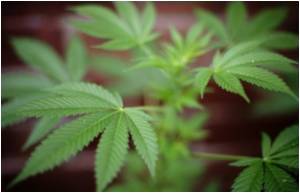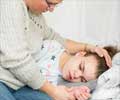Researchers have debated on the therapeutic potential of medical marijuana and pure cannabidiol (CBD) in neurologic conditions.

In a case study, Dr. Edward Maa, Chief of the Comprehensive Epilepsy Program at Denver Health in Denver, Colo., details one mother's experience of providing medical marijuana to her child with Dravet syndrome. The adjunct therapy, a strain of cannabis high in CBD and tetrahydrocannabinol (THC) known as Charlotte's Web, was given in conjunction with the patient's antiepileptic drug regimen. The child's seizure frequency was reduced from 50 convulsions per day to 2 to 3 nighttime convulsions per month.
"Colorado is "ground zero" of the medical marijuana debate," says Dr. Maa. "As medical professionals it is important that we further the evidence of whether CBD in cannabis is an effective antiepileptic therapy." Currently, 21 states and the District of Columbia (DC) have legalized marijuana for medical purposes according to GOVERNING magazine.
A counter-point article summarizes current scientific evidence of CBD use in epilepsy and other neurological or psychiatric disorders including anxiety, schizophrenia and addiction. Previous studies found that THC, the primary psychoactive substance and CBD the main non-psychoactive ingredient in cannabis, display anticonvulsive properties in animals. However, this research was conducted in acute animal models and data is limited for chronic recurrent seizures. Recent studies claim medical marijuana with high ratios of CBD to THC are more effective in seizure control, but the data was anecdotal and not well controlled.
"While cannabis has been used to treat epilepsy for centuries, data from double-blind randomized, controlled trials of CBD or THC in epilepsy is lacking," explains Dr. Orrin Devinsky, Director of the Comprehensive Epilepsy Center at NYU Langone Medical Center in New York and Saint Barnabas Institute of Neurology and Neurosurgery in New Jersey. "Randomized controlled studies of CBD in targeted epilepsy groups, such as patients with Dravet or Lennox-Gastaut syndromes, are in the planning stages."
Dr. Maria Roberta Cilio, Director of Research in Pediatric Epilepsy of the Comprehensive Epilepsy Center at UCSF Benioff Children's Hospital in San Francisco, agrees, "There is a critical need for new therapies, especially for childhood-onset treatment-resistant epilepsies that impair quality of life and contribute to learning and behavioral disorders. Rigorous investigation of the safety and efficacy of medical marijuana or individual components such as CBD are necessary for patients with epilepsy before any conclusion is made. "
Advertisement
Advertisement












